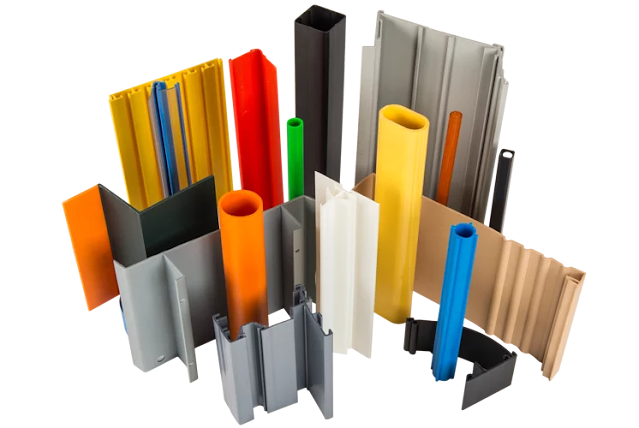Exploring the World of Plastic Extrusion: From Raw Materials to Final Products
A manufacturing technique called plastic extrusion is used to make things having a set cross-sectional profile. Typically in the form of pellets or granules, raw plastic material is heated until it becomes molten in this process, after which it is forced through a specially made die. The extruded plastic is given the proper shape and size by the die, which is followed by cooling and solidification to keep the shape.
Important Steps
in Plastic Extrusion
- Raw Material Selection: The careful selection of the proper plastic resin marks the start
of the process. Based on the desired characteristics of the finished
product, several plastic kinds, including polyethylene, polypropylene,
PVC, and more, are selected.
- Preparation: To produce the necessary properties, the pre-processed plastic
resin is heated and mixed with additives including colorants, stabilizers,
and plasticizers.
- Extrusion: To create the appropriate profile, the pre-processed
plastic material is put into an extruder, a device that melts the plastic
and pushes it through a specifically formed die.
- Cooling: To quickly cool and solidify the plastic as it leaves the die,
the plastic is sent through a cooling chamber or water bath.
- Cutting and Finishing: After the extruded plastic has been set, it is cut with instruments like saws or cutting tools into precise lengths or shapes as per the plastic extrusion guide. Additional finishing techniques like size, punching, or embossing can also be used.
Applications for
Plastic Extrusion
- Packaging: Plastic extrusion creates packaging materials including
bottles, containers, bags, and films that are often used for storing,
safeguarding, and transporting goods.
- Extruded plastic goods, including pipes,
profiles, and sheets, are used in construction for a variety of purposes,
including windows, roofing, and plumbing.
- Automobile: The fabrication of numerous components, such as seals,
gaskets, trim, and interior pieces, is one of the advantages of plastic
extrusion for the automobile sector.
- Consumer Products: Plastic extrusion is used in the production of many things that are used daily, including toys, stationery, and kitchenware.
Benefits
Several benefits
of plastic extrusion include:
- Extrusion techniques are frequently
mechanized and very effective, which lowers labor costs and minimizes
material waste.
- Customization: The method enables producers to produce goods with certain
sizes, forms, and features while also allowing for precise design and
customization.
- Material Flexibility: A variety of plastic materials, each with its special qualities and traits, can be used in plastic extrusion.
- The plastic extrusion process is appropriate for high-volume manufacturing since it can generate a lot of goods in a short amount of time.




Comments
Post a Comment